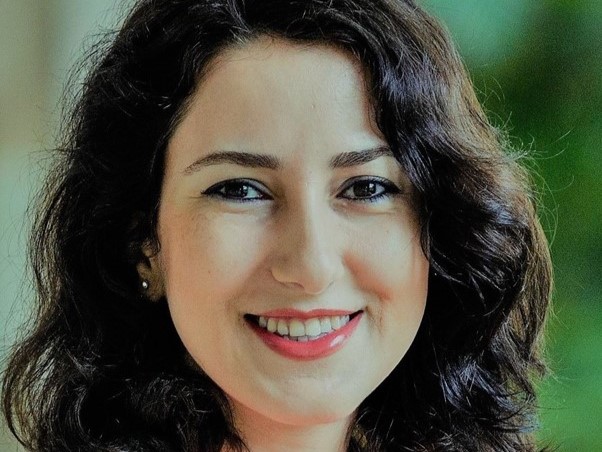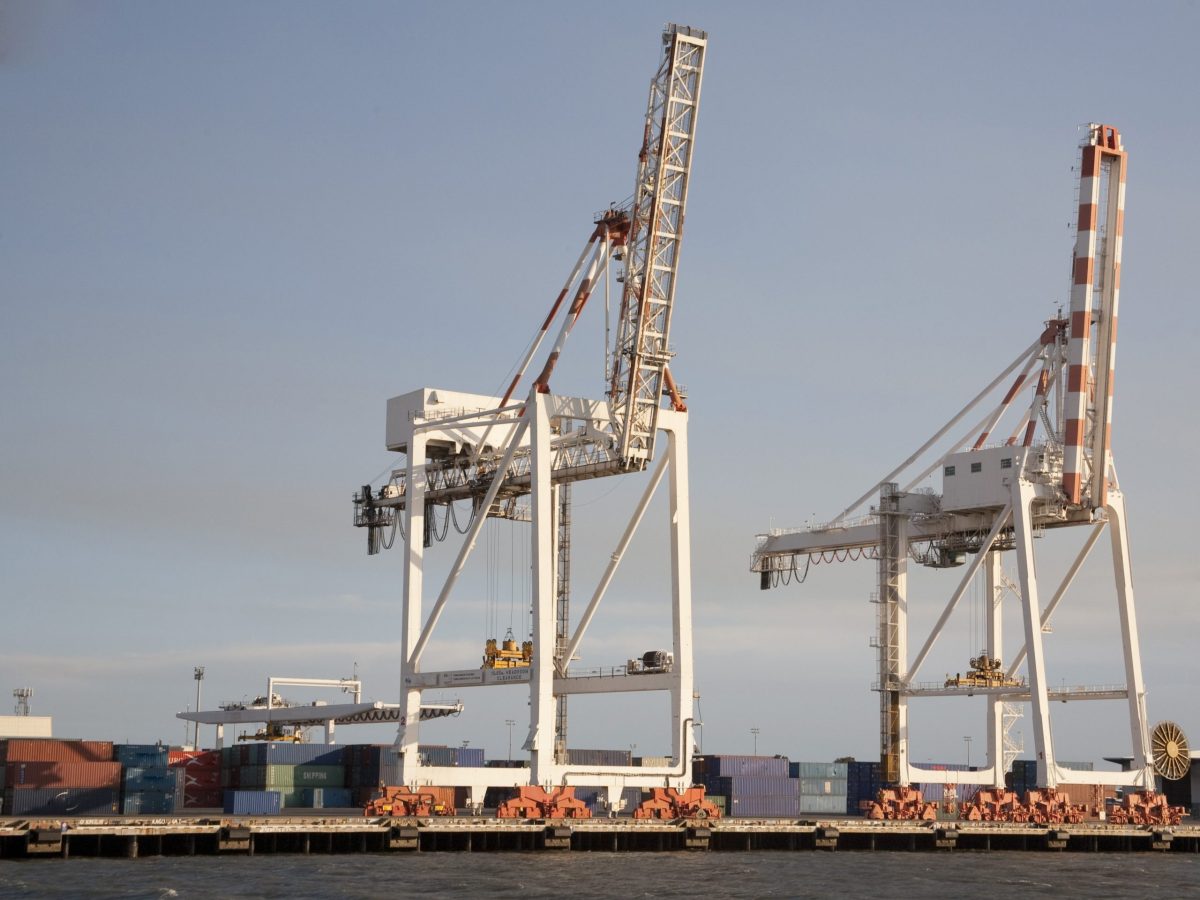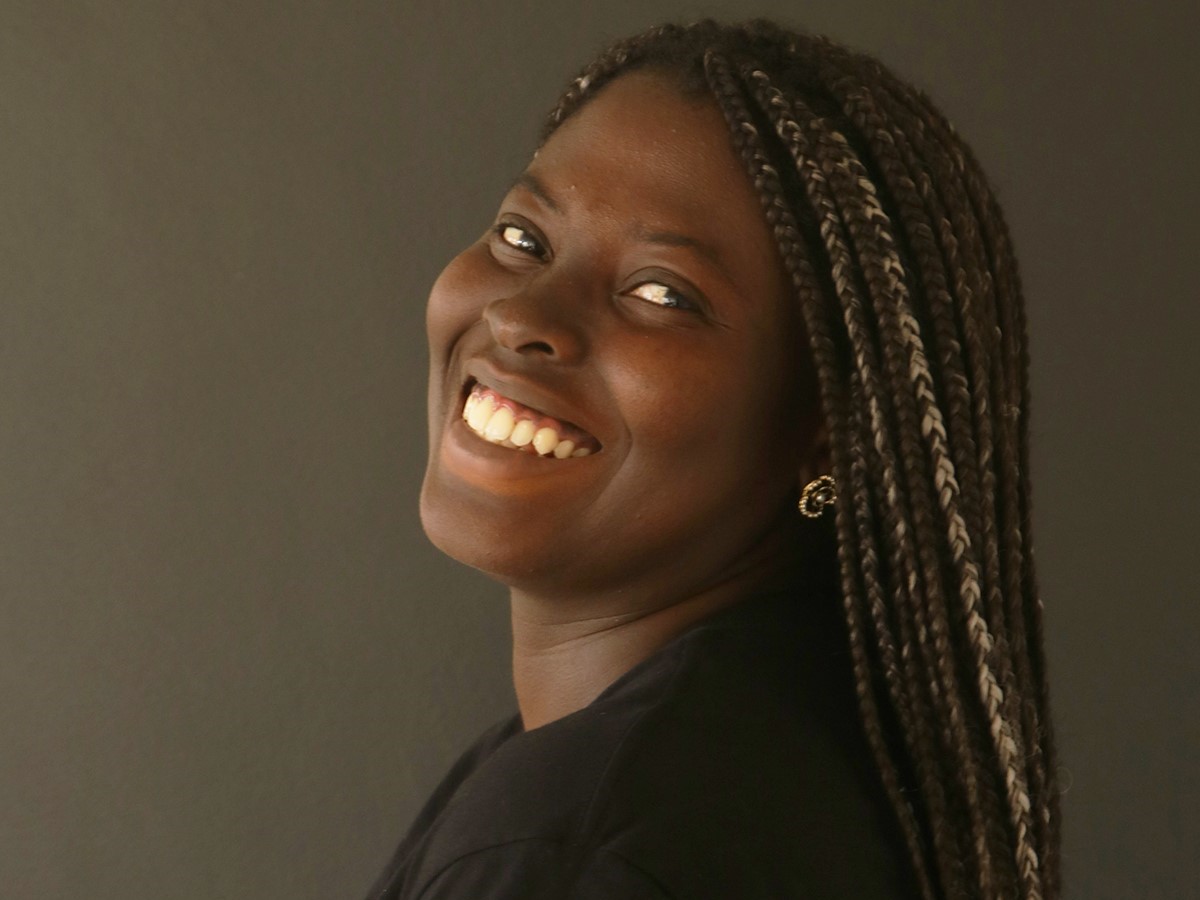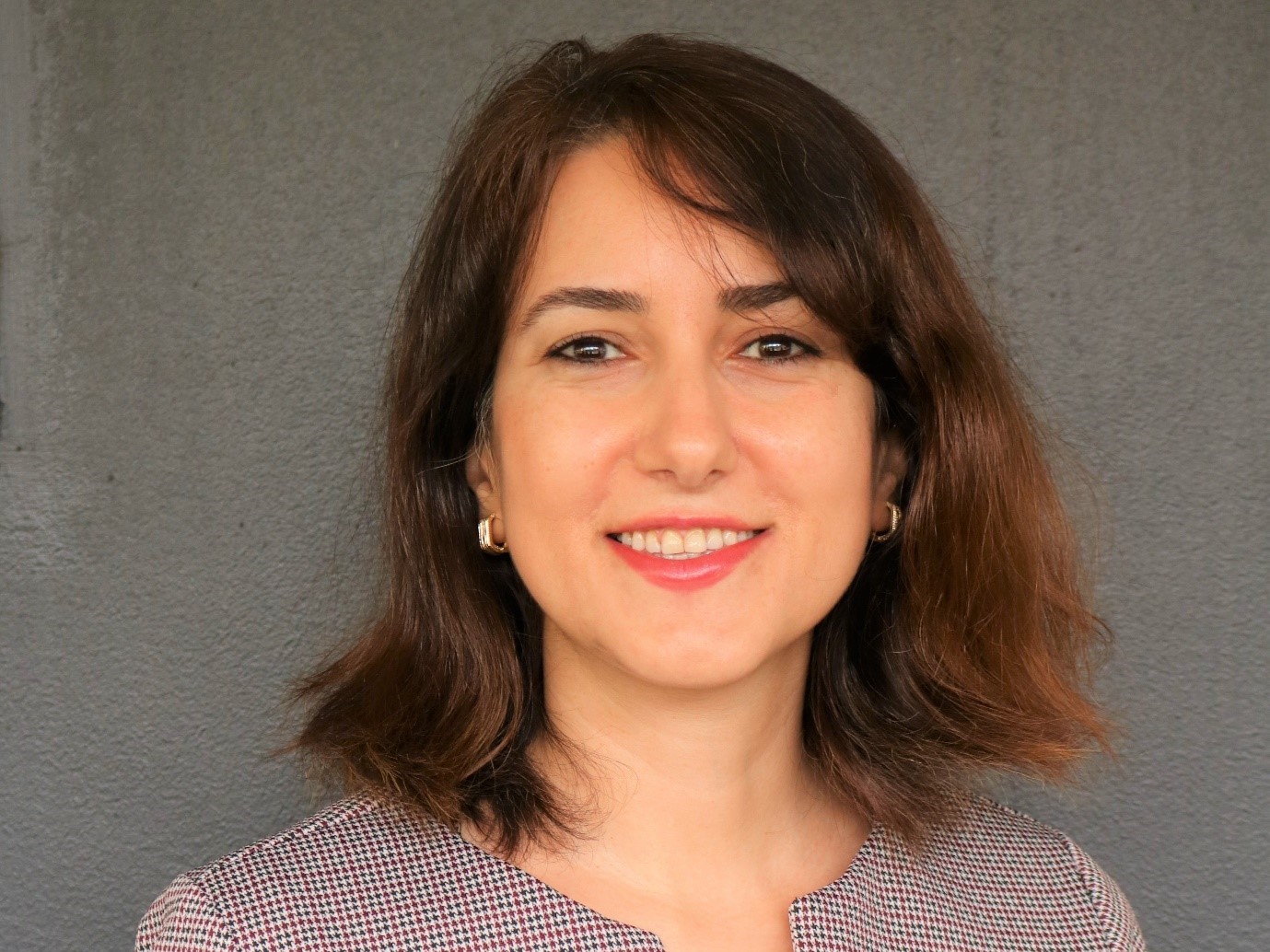Having honed her civil and transport engineering expertise in industry and government in Iran, Elnaz (Elli) Irannezhad relocated to Australia, where she ramped up her research skills with a PhD in at University of Queensland (UQ) and project work with Port of Brisbane and the Australian Road Research Board (ARRB).
In 2022 she was appointed Senior Lecturer in Transport Engineering within UNSW’s School of Civil and Environmental Engineering, based at the Centre for Integrated Transport Innovation (rCITI).
Since 2018, Dr Irannezhad has been the recipient of several industry and academic grants, has presented her research at nearly two dozen conferences, and has had her findings and opinions published in leading academic journals.
“My research contributes to the advancement of science in cross-disciplinary fields, including agent-based freight transport modelling, Logistics 4.0, digital supply chain, shared economy mobility and logistics solutions, blockchain technology, automated driving and heavy vehicle smart monitoring,” she says.
Between her research, teaching and real-world commitments, Dr Irannezhad mentors promising Engineering students – including Future Food Systems PhD scholar Kesewa Agyemang, who is modelling agrifood supply chains in a bid to improve efficiency, curb carbon emissions and cut costs in the journey from farm to fork.

Dr Elli Irannezhad spent her early career working in the transport industry in Iran. Credit: UNSW Sydney
Early career: real-world industry experience
In 2009, Elli Irannezhad completed a Master of Engineering from Iran University of Science and Technology. Post-graduation, she worked extensively as an engineer in her home country, Iran.
“For over nine years, I was a Civil and Transport Engineer in various workplaces, including construction sites, consulting companies and government agencies,” Dr Irannezhad recalls. “I was involved in multiple large-scale transport projects, such as Tehran’s integrated ITS Highway Management Plan and Integrated Public Transport Network Re-design, commissioned by the Tehran City Council in a University Research Centre.
“This prompted me to pursue a PhD to advance my knowledge and expertise. I decided to apply abroad and study in a high-ranked university to expand the benefits of a PhD.” she says.
In 2014, Dr Irannezhad came to Brisbane, Australia to study her PhD.

Freight transport, one of Dr Elli Irannezhad’s areas of expertise. Credit: Shutterstock
Putting research runs on the board
Dr Irannezhad’s focus on freight transportation and logistics ramped up in 2014 after she became a PhD candidate at the University of Queensland, working within UQ’s School of Civil Engineering.
“My PhD was on behavioural freight transport modelling,” she says. “My thesis contributed to the field of behavioural agent-based modelling and operation research.”
“Through an agent-based simulation, I studied the influential factors in logistics decision-making processes, and the likely impact of horizontal and vertical integration of freight transport operators through an intelligent decision support system in hinterland container transport, or the so-called ‘port community system’.”
Circumventing gender stereotypes
In the process of gaining her doctorate, the young engineer from Iran cemented some valuable lessons in busting gender stereotypes.
“Back in my university days, as one of a handful of female Civil Engineering students in Iran, I realised that to survive, I had to be comfortable with being one of a few women–sometimes the only woman – in the class or on field trips. I realised I should not let this intimidate me; I should take this as an opportunity to stand out and prove my confidence and work excellence,” Ms Irannezhad recalls.
“The Australian logistics sector is also a male-dominated industry, and relatively distant from the research community,” she explains. “The logistics sector has so many complexities, and experience plays like an ace card. It leads to a misconception that women researchers undermine the complexity of logistics operations due to their lack of industry experience, and their research will not be pragmatic. It becomes more arduous if your research is on disruptive technology solutions and when you come from an engineering background, working with numbers and formulas.”
Expanding industry experience and networks
Ms Irannezhad combatted these stereotypes not by retreating into desk work, but by leaving her comfort zone, putting herself out in the real world.
“I pursued diverse, functional roles as early as I could. I took different jobs and challenged myself by working in different environments, including private consulting companies, government organisations, research institutes, even as a freelancer,” she says. “Working across various disciplines and taking on different roles and projects helped me to expand my network, better understand the industry and consequently, become more confident.”:
Most importantly, perhaps, Dr Irannezhad found industry mentors prepared to share insider knowledge and, later, amplify her research findings.
“It is often easier to find a supportive academic mentor. Still, as a young female researcher in a male-dominated industry such as logistics, you also need an industry mentor – which is often not easy,” she says. “With perseverance, I managed to find a few mentors who were willing to share their empirical knowledge with me in the hope of preserving and transforming it via the academic community. Later, they became very vocal in broadcasting my research outcomes and their value-adding, mainly because they perceived themselves as contributors – and indeed they were.”

Loading ships in the Port of Brisbane. Credit: Shutterstock
Lessons from real world research: Working with industry
On completing her doctorate in 2017, Dr Irannezhad joined the School of Economics and the Australian Institute of Business and Economics at UQ as a postdoctoral research fellow, working on a project co-funded by Port of Brisbane and University of Queensland. Her role included consulting with Port of Brisbane on its blockchain-based Trade Community System.
“My postdoctoral project focused on applying blockchain to port logistics,” Dr Irannezhad explains. “I examined different blockchain-based enterprise architectures and their suitability to port logistics.
From 2020 to 2022, she acted as Principal Engineer and the Portfolio Leader of Next Generation Transport Systems at the Australian Road Research Board (ARRB). “I led several projects in automated driving technologies and sensors, infrastructure readiness for autonomous vehicles, and other emerging intelligent technology systems,” she says. Here, as in academia, there were lessons to be learned. “As a researcher working on industry-led projects, I learned that I have to break the stereotype that ‘researchers know everything, and better than everyone else’,” Dr Irannezhad says.
When working with industry, it helps to remind commercial players of the value of translating real-world know-how into scientific ‘proof’, she notes: “While I always do my best to show competency and the value proposition of my research, I also nudge this idea that I am translating their valuable experience into research language, which will be useful for future generations.”
Industry and university research grants
Standout research qualifications and international industry experience have helped Dr Irannezhad attract and successfully deliver three external industry grants since 2019, sponsored by the National Transport Commission (NTC); the federal government Department of Infrastructure, Regional Development and Cities (DIRDC), now the Department of Infrastructure, Transport, Regional Development, Community and the Arts; Regional Development Australia’s Northern Rivers division; the Queensland Government Department of Transport and Main Roads; Austroads, Main Roads Western Australia; and the Victorian State Government Department of Transport and Planning respectively.

Dr Irannezhad is supervising FFS PhD Kesewa Opoku, who is modelling Australia’s agrifood supply chains from farm to fork. Credit: Thampapon/ Shutterstock
Modelling Australian agrifood supply chains from farm to fork
Most recently, Dr Irannezhad joined Future Food Systems’ growing group of PhD supervisors. She is overseeing FFS PhD student Kesewa Agyemang, whose doctoral research involves investigating agrifood supply chains. Ms Agyemang is using mathematical algorithm-based models to optimise commodity freight supply chains so that food and beverage products get from A to Z more efficiently, safely and sustainably.
“Freight transport systems present modellers with particular challenges, as various players must be considered, including those involved in production, inventory, transport logistics, consumption and trade,” Dr Irannezhad says. “This is particularly important when examining international and inter-regional freight.”
“My PhD student, Kesewa, is from Ghana, Africa, with great potential and inspiration. I hope that, with my experience and pragmatic research approach, I pave the road for her to become an emerging female scholar and leader in her community,” Dr Irannezhad says.

Kesewa Agyemang. Image courtesy of Kesewa Opoyu Agyemang
Paving the way to a brighter future for women in STEM
Forging a successful career in STEM can be challenging, whatever your gender, but proactivity, persistence and producing quality work pay off, Dr Irannezhad asserts.
‘If you maintain your work integrity and continue to deliver, you will most likely survive in this industry. However, it is probably not enough to make you grow – at least, not with the same speed as your male colleagues,” she says.
“My experience has shown me that I need to be proactive, tenacious, passionate and enthusiastic about my jobs and my goals; more updated about industry events than anyone else in the room; and proactively contributing value – not just in conversations but in bringing new, creative and cutting-edge, practical ideas to the table. It requires me to invest in myself, build my knowledge base, and challenge myself to think outside the box.”
Despite the obstacles, Dr Irannezhad believes the future is bright for women in STEM.
“Many big companies and organisations are moving towards bringing in gender diversity, and many colleges and universities have developed curriculum in STEM majors that attract more women in supply chain and freight transportation,” she says. “Opportunities for women continue to grow, and we see more C-suite women emerging in this industry.
“You can also find many industry leaders who are willing to help women grow in this space, but only when they make their own decision to grow.”
More information about Dr Irannezhad
Website Elnaz Irannezhad
LinkedIn: Elnaz Irannezhad
ORCID: ORCID profile


